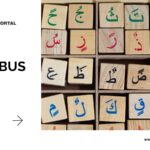The JAMB syllabus for Hausa serves as a vital resource for candidates preparing for the Unified Tertiary Matriculation Examination (UTME). It outlines key objectives, topics, and areas of focus that students need to master in order to succeed in their exams.
Objectives of the JAMB Hausa Syllabus
The syllabus aims to assess the candidates’ understanding and proficiency in the Hausa language and culture, focusing on the following objectives:
- Read and Write Competently in Hausa
Candidates will develop their skills in reading and writing in the Hausa language, ensuring effective communication. - Understand Basic Features of Hausa Grammar
The syllabus emphasizes the importance of mastering the fundamental aspects of Hausa grammar, including syntax, morphology, and phonetics. - Knowledge of Oral and Written Hausa Literature
Students will explore both oral traditions and written forms of literature, gaining insights into the rich literary heritage of the Hausa people. - Appreciate Hausa Culture, Customs, and Institutions
An understanding of the cultural context, customs, and social institutions of the Hausa people is essential for a comprehensive grasp of the language.
Syllabus Overview: Key Areas of Study
The JAMB Hausa syllabus is structured around three main areas, each containing specific topics to guide candidates in their preparation:
- Harshe (Language)
- Grammar: Understanding parts of speech, sentence structure, tenses, and the use of idiomatic expressions.
- Vocabulary: Building a robust vocabulary that encompasses everyday language, technical terms, and expressions.
- Al’adu (Culture)
- Customs and Traditions: Exploration of the customs, traditions, and practices that characterize the Hausa people, including festivals, rituals, and social norms.
- Social Institutions: Understanding family structures, roles within the community, and traditional governance systems.
- Adabi (Literature)
- Oral Literature: Study of folktales, proverbs, and poetry, emphasizing their significance in Hausa culture and communication.
- Written Literature: Analysis of Hausa novels, plays, and poetry, focusing on themes, styles, and the contributions of notable Hausa authors.
Benefits of the JAMB Hausa Syllabus
By utilizing the JAMB Hausa syllabus, candidates can expect to gain several advantages:
- Targeted Preparation: The syllabus provides a clear framework for study, ensuring that students focus on relevant topics that will be assessed in the examination.
- Comprehensive Understanding: Candidates will develop a well-rounded understanding of the Hausa language, including its grammatical structures and cultural context.
- Resource Guidance: The syllabus includes a recommended texts section, which lists essential Hausa literature and grammar books (titles, authors, and editions) that can aid in effective study.
In summary, the JAMB Hausa syllabus is an essential tool for UTME candidates, providing a structured approach to mastering the Hausa language and its cultural nuances. By following the syllabus, students can prepare thoroughly and approach their exams with confidence.
Related
Stay updated with the latest student resources and insights from My School Portal! Subscribe to our newsletter for fresh content delivered straight to your inbox—no spam, just value 😊














